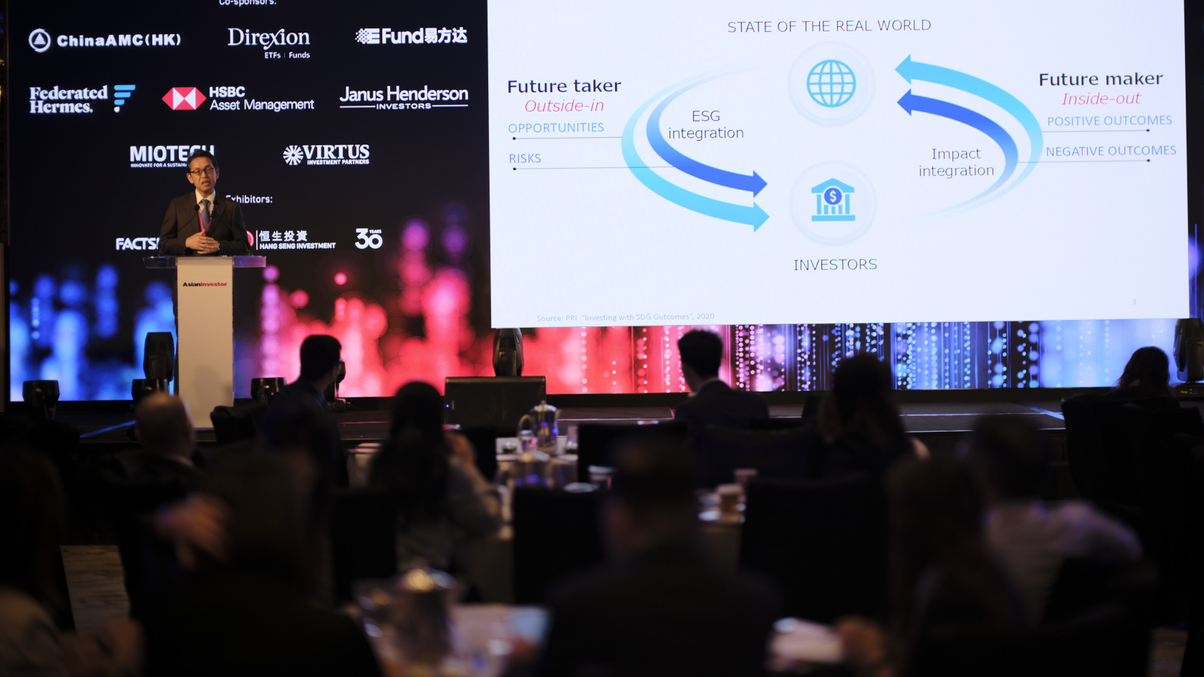Nippon Life: Anti-ESG sentiment can be a boon for ESG
Although ESG-related investments are facing headwinds in the US, it could ultimately serve to strengthen the integration of the factors into asset management, delegates heard at AsianInvestor’s Asia Investment Summit in Hong Kong.

Opposition to environmental, social and governance (ESG) factors in the US among institutional investors and asset managers could, paradoxically, end up having a positive effect on the integration of ESG going forward, according to Takeshi Kimura, special advisor to the board at Nippon Life Insurance.
Sign in to read on!
Registered users get 2 free articles in 30 days.
Subscribers have full unlimited access to AsianInvestor
Not signed up? New users get 2 free articles per month, plus a 7-day unlimited free trial.
¬ Haymarket Media Limited. All rights reserved.


